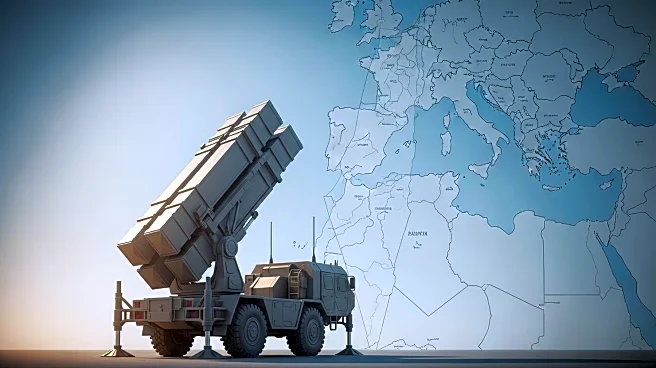What's Happening?
Two years after the October 7, 2023, attack by Hamas, Israel is reassessing its security and strategic posture. The attack, which resulted in significant casualties and hostages, exposed systemic failures in Israel's reliance on technology and static defenses. The incident has prompted calls for a shift towards a more dynamic defense strategy that integrates technology with human intelligence and rapid response capabilities. Additionally, the attack highlighted civil preparedness gaps, necessitating a stronger interface between military and civilian sectors. The broader regional context involves Iran, Hezbollah, and other groups, requiring Israel to adopt a comprehensive security-diplomatic approach.
Why It's Important?
The October 7 attack serves as a pivotal moment for Israel, emphasizing the need for a strategic overhaul in its defense and regional policies. The incident underscores the importance of adaptive security measures and civil resilience, which are crucial for maintaining national security and public trust. The broader regional dynamics, involving Iran and Hezbollah, highlight the interconnected nature of Middle Eastern geopolitics. Israel's response and strategic adjustments could influence regional stability and its diplomatic relations, particularly with Arab states and through frameworks like the Abraham Accords.
What's Next?
Israel faces the challenge of implementing a coherent strategy that addresses both security and civil resilience. This involves strengthening military-civilian cooperation, enhancing rapid response capabilities, and maintaining a consistent narrative in the global information domain. The regional focus will likely include dismantling terrorist capabilities in Gaza and fostering cooperation with pragmatic elements within the Palestinian Authority and Arab states. Israel's ability to navigate these complex dynamics will be crucial in shaping its future security landscape and regional influence.
Beyond the Headlines
The October 7 attack raises ethical questions about Israel's military and diplomatic strategies. Balancing security needs with moral imperatives, such as minimizing harm to noncombatants, is essential for maintaining legitimacy. The incident also highlights the importance of a unified national narrative to counter disinformation and maintain international support. Long-term, Israel's strategic adjustments could redefine its role in the Middle East and influence broader geopolitical alignments.









